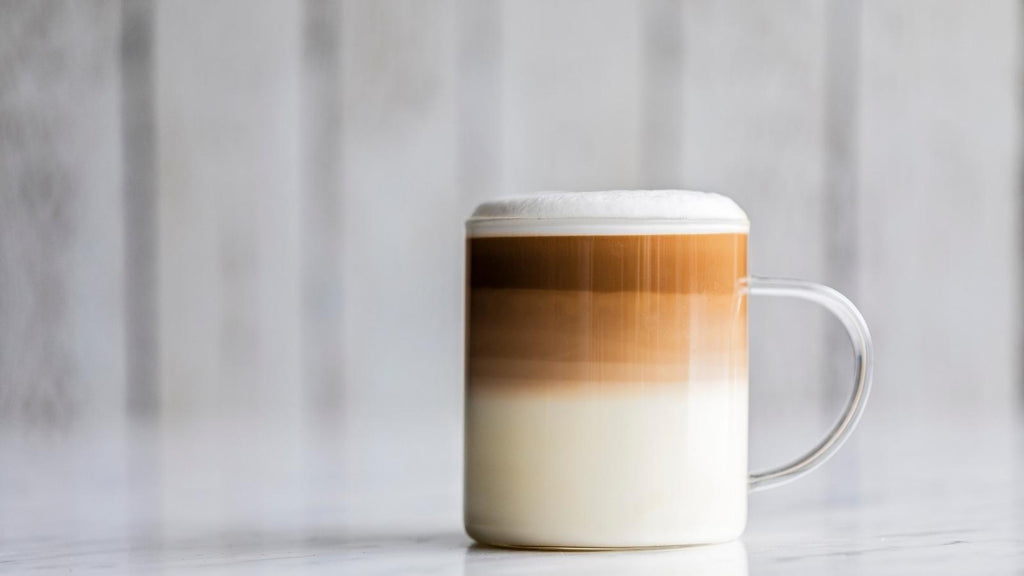The Battle for Coffee Flavor: Syrup v. Creamer
What you should know about coffee syrups & coffee creamers
Starting the day with a fresh cup of caffeine is a must for many of us. For better or worse, that caffeine comes in the form of coffee more often than not. Even people who don't like the taste of coffee like the smell of it.
For those who do like the taste, a quality cup of coffee is a delight to the senses - sight, smell, taste, even feel. There's something comforting about that warm mug in your hands and the careful sips spreading that warmth throughout your body.
True coffee connoisseurs make art of roasting and grinding beans, and pulling the espresso shot so that their short black is as velvety smooth as in any cafe in Vienna or Paris. For us mere mortals, creamers, syrups, and sweeteners mask any bitterness from lesser quality grounds.
In the battle for coffee flavor, is there a difference between coffee syrups and coffee creamers? Well... how you flavor your coffee could be making you feel worse than a burnt, watery black coffee tastes.

Do you know what's in your coffee?
WHAT EXACTLY IS COFFEE CREAMER?
Coffee creamers were created to enhance the flavor, texture, and color of coffee in an inexpensive and convenient way. Instead of adding "white" and "sweet" separately, creamers offer both in one.
They come in dessert and seasonal flavors and are marketed alongside dairy in most grocery stores.
Creamers seem like a great idea until you look at the ingredient list.
WHAT IS IN YOUR COFFEE CREAMER?
Most traditional creamers are made from a combination of water, sugar (or a sugar substitute), vegetable oil, various chemicals and preservatives.
*SODIUM CASEINATE IS NOT A SOURCE OF LACTOSE
- Sugar - Excess sugar increases our risk for obesity, diabetes, and cardiovascular disease. (source)
- Palm Oil - Palm oil is problematic because of the environmental impact. According to the World Wildlife Fund, tropical forests and other ecosystems with high conservation values have been cleared to make room for vast monoculture oil palm plantations. This clearing has destroyed critical habitat for many endangered species - including rhinos, elephants, and tigers.
- Sodium Caseinate - This protein is derived from milk and generally safe for most people. If you are allergic to casein or intolerant to lactose it can cause digestive issues (bloating, IBS symptoms). It has been shown to induce an inflammatory response in some individuals. It is not a vegan protein. (source)
- Dipotassium Phosphate - A synthetic salt, dipotassium phosphate is used to stabilize or emulsify food products. It is generally safe for healthy individuals but not recommended for those suffering from kidney disease, severe heart and lung disease, or thyroid problems. (source)
- Carrageenan - Although this food additive is derived from red seaweed and approved for use in food by the US FDA, it is banned in Europe. Concern that Carrageenan degrades to poligeenan when exposed to stomach acid leads some scientists to believe that carrageenan causes inflammation, digestive problems, and even colon cancer.(source)
- Mono and Diglycerides - These fats carry similar risks as triglycerides, i.e. trans fats, inflammation, increased risk of heart disease, stroke, diabetes, and obesity. (source)
- Propylene Glycol - This is an alcohol used as a preservative and flavor enhancer. If you are healthy, your kidneys can likely remove this ingredient without issue. However, it can worsen kidney and liver disease symptoms when broken down into lactic acid. (source)
- Polysorbate 60 - Most of the "polysorbate" risks we found were related to Polysorbate 80 which has been shown to compromise the intestinal membrane (aka leaky gut syndrome). However, Polysorbate 60 is also listed with similar risks by the Association for the Advancement of Restorative Medicine. (source)
- Artificial Color - Artificial dyes may cause hyperactivity in children among other neurological issues. [WATCH: TedX Dr. Rebecca Bevans] As such, foods containing artificial dyes carry a warning throughout Europe but not in the U.S. Food dye consumption has increased fivefold in the US since 1955. (source)
- Artificial Flavors - Multiple studies have found a potential correlation between artificial flavoring compounds and an increased risk of developing cancer. (source)
Many of the ingredients found in processed foods can be considered "safe" in small/limited doses. The real problem is that these approvals don't take into consideration the compounding effects of these ingredients across multiple products, every day, over a lifetime.
WHAT ABOUT "SUGAR FREE" COFFEE CREAMERS?

Don't Worry! You Can Still Enjoy "Cream"
Are you afraid you'll miss the creamy mouth-feel of coffee creamer? The Syrup v. Creamer argument misses one important fact. You can still enjoy real dairy cream, milk, or an unsweetened non-dairy milk. Depending on your diet requirements, heavy whipping cream is the traditional way to add creaminess to your coffee. Why not return to tradition?
If dairy isn't your friend, soy, oat, almond and coconut milk are all excellent options. What's your favorite non-dairy milk?
Are Syrups better for you?
The answer will depend on the coffee syrup. MOST coffee syrups, like coffee creamers, are loaded with sugar, artificial sweeteners, and artificial ingredients. If you see "sucralose" on the ingredients list, chances are this "skinny" syrup will do you more harm than good.
SINLESS SYRUPS ARE BETTER FOR YOU
All is not lost in the battle for flavor. There are healthier options that use better-for-you ingredients, like Sugar Free Sinless Syrups.
Unlike other coffee syrups, Sinless Syrups are naturally sweetened with stevia leaf extract and monk fruit. If you've been using sugary creamers or syrups made with sucralose, Sinless Syrups aren't going to taste as sweet.
Your taste buds have been tricked into craving a super-sweetness that puts you in the crosshairs of the battle for flavor. We are set up to lose the war against sugar cravings. If you are trying to cut out sugar from your diet however, using Sinless Syrups is an excellent choice for coffee syrups.
Enjoy the delicious flavors without any guilt over the ingredients!

CLASSIC AND SEASONAL SYRUPS
Sugar Free Sinless Syrups are available in the most popular coffeehouse flavors - Madagascar Vanilla, Mocha, and Salted Caramel, as well as seasonal favorites like Toasted Marshmallow, Peppermint Pattie, and Salted Dark Chocolate.
These versatile syrups are not just delicious in coffee, but in tea, cocktails, sauces, baked goods, and more!
Who wins the Syrup v. Creamer Battle for Flavor?
Traditional coffee creamers are loaded with unhealthy ingredients that can have negative effects on your health. We created Sinless Syrups to redefine low sugar living without sugar or artificial sweeteners. So, in the battle for flavor, YOU WIN because you can still enjoy a delicious cup of coffee without compromising your healthy lifestyle. Make Sinless Syrups part of your low sugar journey. Your body will thank you!






Comment
I have been using your Sugar Free Syrups in my coffee for several months, but I also use Splenda. Now I am thinking it is not helping with my weight loss. Do you have another solution to add to my coffee besides the syrup.